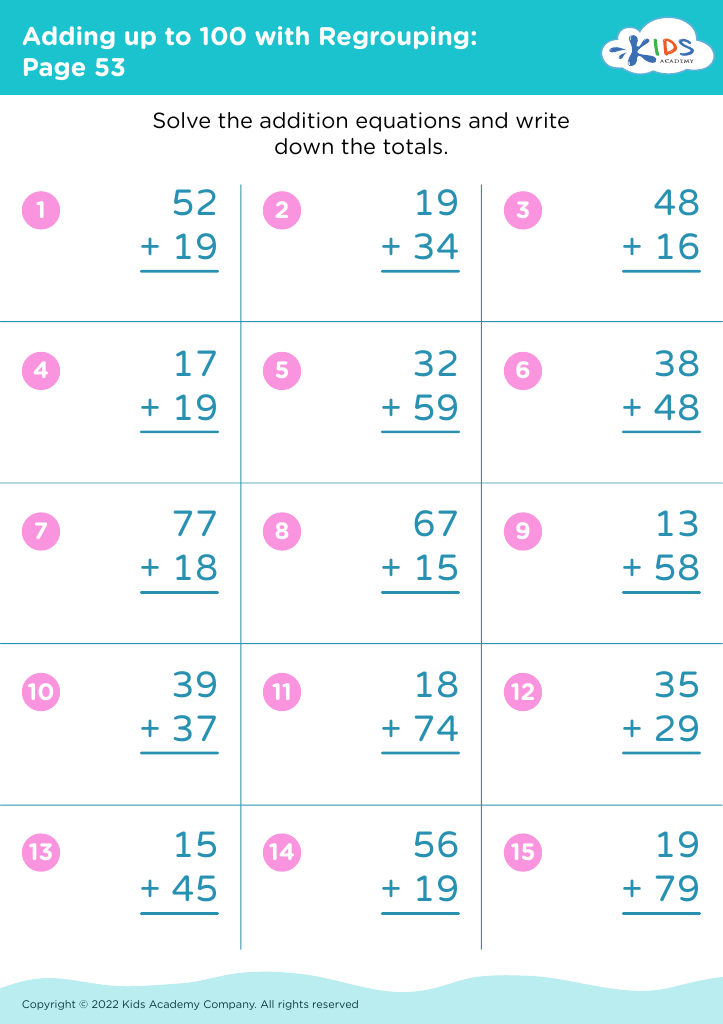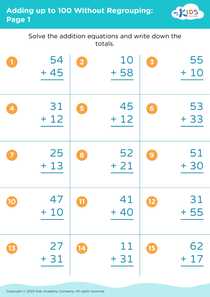Recognize patterns Adding up to 100 with Regrouping Worksheets for Ages 5-7
3 filtered results
-
From - To
Welcome to our "Recognize Patterns Adding up to 100 with Regrouping Worksheets" designed for children ages 5-7! These engaging worksheets help young learners discover mathematical patterns while mastering addition up to 100. By using visual aids and interactive exercises, kids can develop their understanding of regrouping in a fun and effective way. Each worksheet encourages critical thinking and problem-solving skills as students identify and utilize patterns in numbers, reinforcing foundational math concepts. Perfect for home or classroom use, our resources are tailored to enhance your child's confidence and proficiency in math. Start exploring and watch their skills soar!
Recognizing patterns and mastering addition up to 100 with regrouping are foundational skills for children ages 5-7. These concepts enter the realm of mathematical literacy, which is crucial in everyday life. Learning to recognize patterns helps children predict outcomes and make connections between numbers, fostering critical thinking. For example, noticing that adding ten to a number will increase it by one decade motivates and simplifies their math journey.
Regrouping, often called carrying or borrowing, introduces the concept of place value, which is essential for larger number operations. This skill aids in developing a deeper understanding of arithmetic, which sets the groundwork for more advanced mathematics in the future. When children confidently regroup while adding, they gain problem-solving skills and endure less frustration during more complex tasks.
Moreover, these foundational skills contribute to a child's confidence and attitude toward math as they see their progress and ability grow. When teachers and parents engage with children in recognizing patterns and regrouping, they foster a supportive learning environment, enhancing retention and application of these skills. Ultimately, caring about these strategies helps shape mathematically competent individuals prepared for the challenges of higher education and everyday problem-solving.

















